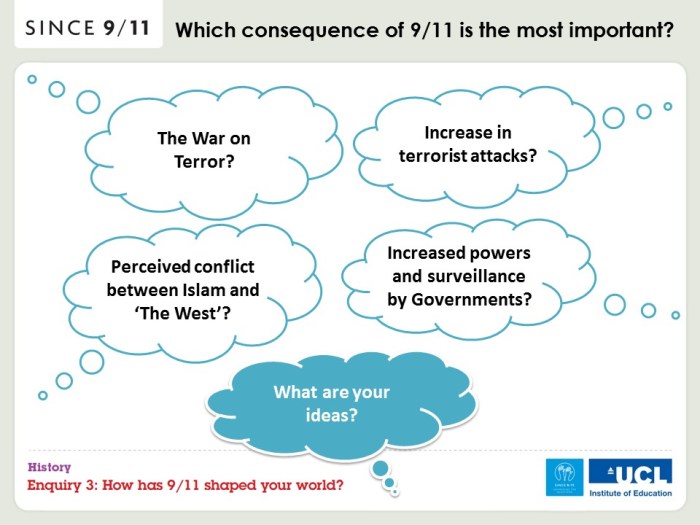A history of the 9 11 attacks newsela answers – Beginning with “A History of the 9/11 Attacks: A Comprehensive Analysis of the Tragedy and Its Aftermath,” this narrative unfolds in a compelling and distinctive manner, drawing readers into a story that promises to be both engaging and uniquely memorable.
This comprehensive account delves into the historical context leading up to the attacks, meticulously examining the geopolitical landscape and significant events that shaped the rise of al-Qaeda. It provides a detailed timeline of the planning and execution of the attacks, shedding light on the individuals and organizations involved, as well as the events that transpired on the fateful morning of September 11, 2001.
Historical Context

The 9/11 attacks were a watershed moment in global history, forever altering the geopolitical landscape. Leading up to the attacks, the world was grappling with a complex interplay of factors that contributed to the rise of al-Qaeda, the terrorist organization responsible for the attacks.
Timeline of Significant Events, A history of the 9 11 attacks newsela answers
- 1979: Soviet invasion of Afghanistan
- 1980s: Formation of al-Qaeda by Osama bin Laden
- 1990s: Al-Qaeda’s involvement in terrorist activities worldwide
- 1998: U.S. embassy bombings in Kenya and Tanzania
- 2000: USS Cole bombing in Yemen
Motivations and Ideologies of the Attackers
The 9/11 attackers were driven by a radical interpretation of Islam, believing that it justified violence against the United States and its allies. They viewed the U.S. as a symbol of Western imperialism and oppression in the Muslim world.
Planning and Execution

The planning and execution of the 9/11 attacks were meticulous and involved a network of individuals and organizations.
Planning and Preparation
- 1996: Bin Laden issued a fatwa calling for attacks on the United States
- 1999: Al-Qaeda operatives began planning the attacks
- 2000: The hijackers arrived in the United States
Role of Different Individuals and Organizations
- Osama bin Laden: Leader of al-Qaeda and mastermind behind the attacks
- Khalid Sheikh Mohammed: Chief architect of the operation
- Mohammed Atta: Lead hijacker of American Airlines Flight 11
- Al-Qaeda training camps in Afghanistan
Events on the Morning of September 11, 2001
On September 11, 2001, 19 al-Qaeda terrorists hijacked four commercial airliners.
- American Airlines Flight 11 and United Airlines Flight 175 crashed into the Twin Towers of the World Trade Center in New York City
- American Airlines Flight 77 crashed into the Pentagon in Washington, D.C.
- United Airlines Flight 93 crashed in a field in Shanksville, Pennsylvania, after passengers attempted to regain control
Immediate Aftermath: A History Of The 9 11 Attacks Newsela Answers

The immediate aftermath of the 9/11 attacks was a time of shock, grief, and determination.
Rescue Efforts and Emergency Declarations
- Firefighters, police officers, and civilians rushed to the aid of victims
- President George W. Bush declared a national emergency
- The Federal Aviation Administration grounded all commercial flights
Impact on the United States and the World
- Nearly 3,000 people were killed in the attacks
- The attacks triggered a global war on terrorism
- The U.S. economy suffered significant losses
Political and Social Consequences
- Increased security measures at airports and other public places
- Heightened surveillance and intelligence gathering
- Erosion of civil liberties
Questions and Answers
What were the primary motivations behind the 9/11 attacks?
The attackers were driven by a radical ideology that sought to establish an Islamic caliphate and oppose Western influence in the Middle East.
How did the 9/11 attacks impact U.S. foreign policy?
The attacks led to a significant shift in U.S. foreign policy, including the launch of the War on Terror and increased military presence in the Middle East.
What are the ongoing challenges in preventing future terrorist attacks?
Intelligence gathering, international cooperation, and addressing the root causes of terrorism remain ongoing challenges in preventing future attacks.